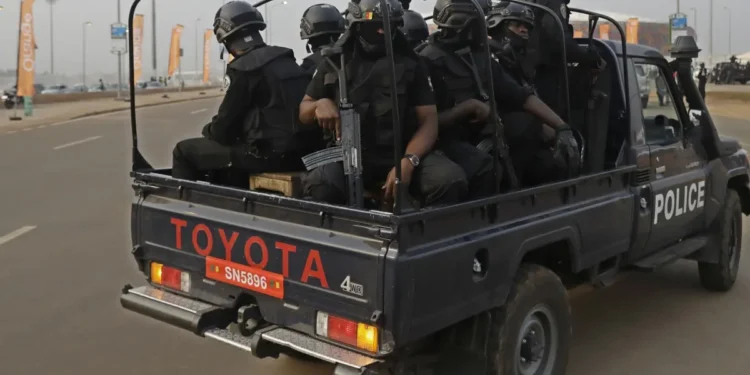Human Rights Watch (HRW) and local activists are calling for an independent and transparent investigation on the circumstances surrounding the death of Abdoul Wahabou Ndandjouma, a 36 years old man who died in custody on 17 January 2025. Reports indicate that Abdoul was allegedly tortured before his death, raising serious concerns over police brutality and impunity in Cameroon.
Four plainclothes officers arrested Ndandjouma and Mohaman Toukour Nana at his shop in N’Gaoundéré, in the Adamawa region, without a warrant. The officers went to his home and took Nana into custody as well. Nana, released later that day, told HRW he was interrogated separately but could hear Ndandjouma screaming in pain from the next room.
“They said we were drug dealers, but they found no evidence of that in the house,” Nana recounted. “I could hear Ndandjouma begging for help, asking them to take him to the hospital.”
According to Nana, a police commissioner later confronted the officers, demanding that they take Ndandjouma to the hospital immediately. By the following morning, however, authorities informed Ndandjouma’s family that he had died, and they held his body at the N’Gaoundéré regional hospital.
Calls for Full Investigation
Following the announcement of his death, Ndandjouma’s father rejected immediate burial, insisting on a full investigation into the circumstances leading to his son’s demise.
“My son was in good health before his arrest. We demand an autopsy and justice,” he said.
Ndandjouma’s family lawyer confirmed that an autopsy took place between January 20 and 24, but the family still awaits the results. He also announced plans to file a formal complaint in Yaoundé against the officers involved.
Human rights organizations have long documented cases of torture and deaths in detention in Cameroon. In December 2024, the United Nations Committee Against Torture expressed concern over the high number of reported deaths in custody, citing torture and lack of healthcare as key contributing factors.
Broader Pattern Abuse
Ndandjouma’s death also comes amid a broader government crackdown on dissent, particularly ahead of Cameroon’s upcoming presidential elections. Reports indicate that opposition voices, journalists, and activists have faced increased repression:
In June 2024, Gendarmes in N’Gaoundéré rearrested artist Aboubacar Siddiki (Babadjo) for allegedly insulting a governor. Next, authorities arrested social media activist Junior Ngombe in July 2024 in the littoral region for TikTok videos advocating for democratic change. In December 2024, authorities forcibly disappeared political activist Yérima Djoubaïrou Tchéboa, leaving his whereabouts unknown until January 21, 2025, when they claimed he was in police custody.
Meanwhile, the government has restricted human rights monitoring by suspending the activities of the Central Africa Human Rights Defenders Network (Réseau des Défenseurs des Droits Humains en Afrique Centrale) for three months.
HRW has condemned the persistent lack of accountability for security forces implicated in human rights violations.
“Ndandjouma’s appalling and senseless death is part of a pattern of police abuse in Cameroon,” said Ilaria Allegrozzi, senior Africa researcher at HRW. “Authorities must conduct an independent and transparent investigation, ensuring those responsible face justice.”
Culture of Impunity
Cameroon’s security forces rarely face prosecution for such abuses, despite repeated calls for accountability. Many fear that Ndandjouma’s case could go unresolved, much like the 2023 killings of journalists Martinez Zogo and Jean Jacques Ola Bebe, found dead under suspicious circumstances.
Cameroon must investigate deaths in custody and hold perpetrators accountable under national and international human rights law. However, acting in this case is crucial to challenge the country’s deep-rooted culture of impunity.
Ndandjouma’s family awaits answers while pressure mounts on authorities to serve justice, not only for this case but for all victims of state brutality in Cameroon.



